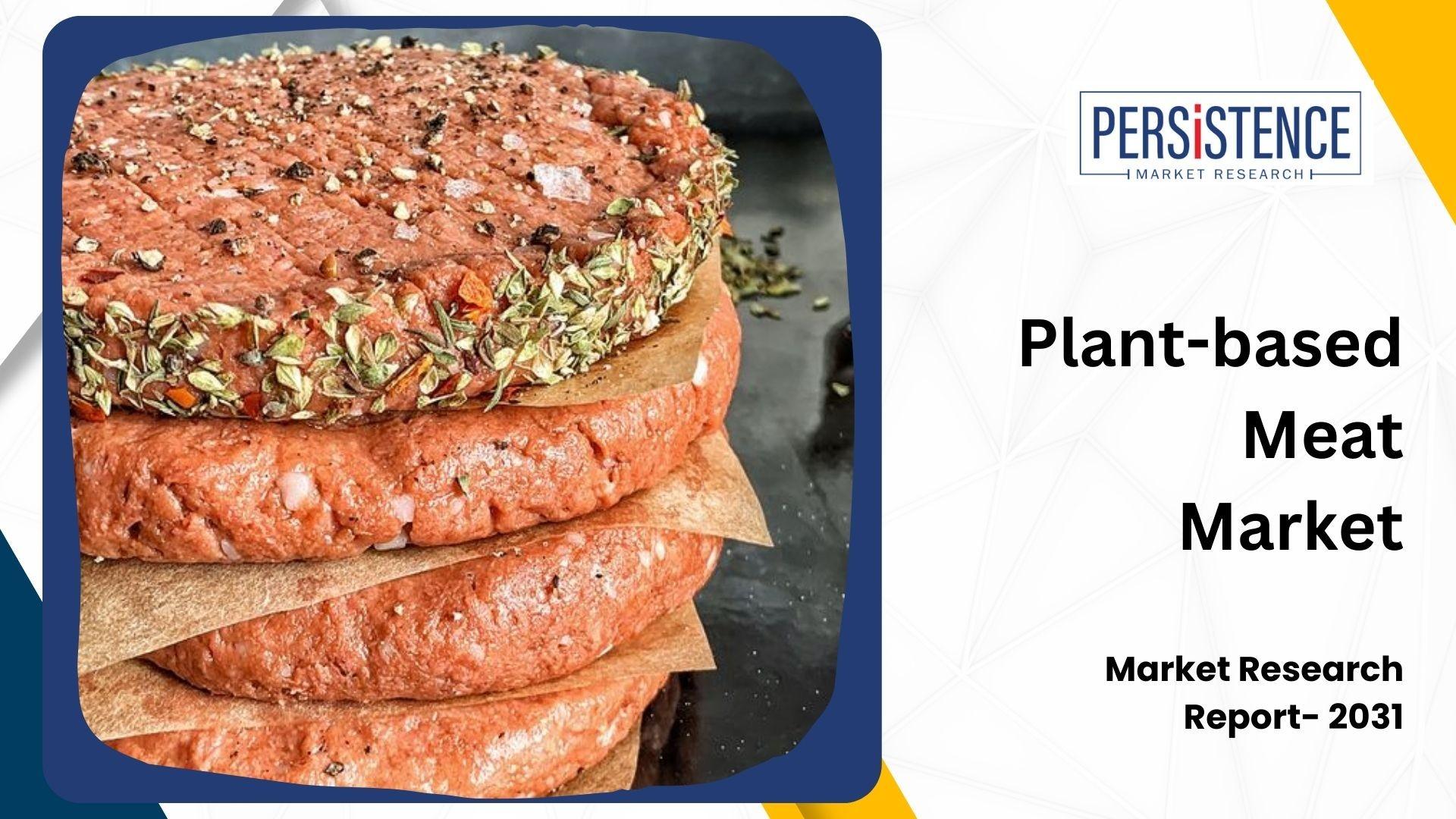Plant-Based Meat Market Boom: Key Factors Fueling Its Growth

In recent years, plant-based meat has emerged as a disruptive force in the food industry, presenting an eco-friendly alternative to traditional animal protein. This innovative category is not only capturing the attention of consumers but also reshaping the global conversation on sustainability, health, and food security. As environmental concerns rise and the demand for alternative protein sources grows, plantbased meat is set to play a pivotal role in the future of sustainable food systems. The global plant-based meat market is estimated to value at US$36.13 Bn by the end of 2031 from US$14.51 Bn recorded in 2024. The market is expected to secure a CAGR of 13.9% in the forthcoming years from 2024 to 2031.
The Rising Demand for Sustainable Protein
With the world’s population expected to exceed 9 billion by 2050, the demand for protein is set to increase dramatically. Traditional livestock farming requires vast amounts of land, water, and feed, contributing to significant greenhouse gas emissions and deforestation. This has created an urgent need for more sustainable sources of protein that have a smaller environmental footprint. Plant-based meat
has risen as a promising solution, offering a way to satisfy growing protein needs while minimizing the negative impact on the planet.
������ ������������ �������� ������- https://www.persistencemarketresearch.com/samples/24592
(Use Corporate Mail Id for Quick Response )
The Innovation Behind Plant-Based Meat
Plant-based meat innovation has seen remarkable advancements in recent years. Companies are using sophisticated technologies to replicate the texture, taste, and nutritional profile of animal-based meat, making plant-based alternatives more appealing to a broader audience. Ingredients such as pea protein, soy, lentils, and mycoprotein are being harnessed to create products that closely mimic the taste and mouthfeel of beef, chicken, pork, and even seafood.
Health Benefits of Plant-Based Meat
Aside from the environmental benefits, plant-based meat offers several health advantages. These products tend to be lower in saturated fat and cholesterol than their animal counterparts, helping to reduce the risk of heart disease and other health issues. Additionally, many plant-based meats are fortified with essential vitamins and minerals such as B12 and iron, which are often lacking in vegetarian diets. As consumers become more health-conscious, the demand for plant-based products is expected to continue to grow.
The Role of Technology in Advancing Plant-Based Meat
Technology has been at the forefront of plant-based meat innovation, enabling producers to develop more sophisticated products. Advances in molecular biology and food science have allowed for the creation of more realistic meat alternatives that can satisfy even the most discerning meat-eaters. Companies are also leveraging fermentation and 3D printing technologies to enhance product quality and sustainability.
Moreover, plant-based meat companies are now focused on creating whole cuts of meat, such as steaks and chicken breasts, which are typically more challenging to replicate. These innovations are expected to expand the variety of plant-based meat products available in the market, further driving consumer adoption.
Sustainability and Ethical Considerations
One of the most compelling arguments for plant-based meat is its environmental sustainability. Animal agriculture is responsible for around 14.5% of global greenhouse gas emissions, with significant contributions to water pollution and habitat destruction. In contrast, producing plant-based meat requires far fewer natural resources. According to some estimates, producing plant-based burgers can result in 90% fewer greenhouse gas emissions, 46% less energy use, and 99% less water use compared to traditional beef production.
Furthermore, ethical concerns surrounding animal welfare have also driven consumers to seek alternatives to animal-based products. Plant-based meat offers an ethical option for individuals who want to reduce their reliance on factory farming and make more humane food choices.
Challenges in the Plant-Based Meat Industry
Despite the rapid growth and innovation in the plant-based meat industry, challenges remain. One of the biggest hurdles is the cost. While plant-based meats have become more affordable, they are often still more expensive than traditional meats, making it difficult for price-sensitive consumers to make the switch. However, as technology improves and economies of scale are achieved, the cost of production is expected to decrease, making plant-based meats more accessible to the masses.
Another challenge is consumer perception. Some consumers are hesitant to try plant-based meat due to concerns about taste, texture, or unfamiliar ingredients. However, as more people try these products and realize their benefits, the plant-based meat industry is likely to overcome these initial barriers.
The Future of Plant-Based Meat
The future of plant-based meat is promising, with innovation and sustainability driving the market forward. As more consumers become aware of the environmental and health benefits of plant-based alternatives, demand will likely continue to rise. Additionally, as technology evolves and new ingredients are discovered, the variety and quality of plant-based meats will expand, offering more options for consumers.
In the coming years, plant-based meat is expected to play a significant role in reducing the environmental impact of food production, providing a sustainable solution to feed the world’s growing population. With continued investment in research and development, the plant-based meat sector is poised to become a major player in the global protein market, transforming the way we think about food and sustainability.
